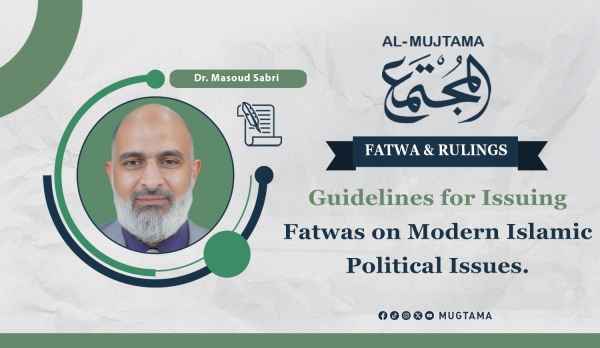Guidelines for Issuing Fatwas on Modern Islamic Political Issues
Given these complexities, it is essential for every jurist, researcher, or student of Islamic law to prepare themselves adequately before engaging in this challenging field. No one should rush to issue fatwas or make independent legal rulings on such contemporary political issues without first equipping themselves with a solid foundation in Islamic jurisprudence, extensive experience in issuing fatwas in general, and, more specifically, expertise in matters of Islamic governance. Furthermore, they must meet the conditions of ijtihad (independent legal reasoning) as defined by scholars in classical Islamic literature, in addition to adhering to several key principles. Among the most critical of these are:
- Specialization in Jurisprudence (Fiqh):
A scholar dealing with political fatwas must be a specialist in Islamic jurisprudence (fiqh) rather than in other fields of knowledge. Since Islamic political jurisprudence pertains to public affairs, it has often been approached by individuals who lack the necessary scholarly background, particularly those with media presence but no formal training in fiqh. Classical scholars have warned against this; for example, Ibn al-Jawzi in Sayd al-Khatir and others have highlighted the dangers of non-jurists engaging in political fatwas. They also pointed out that some scholars outside the field of fiqh, such as certain hadith specialists, may make errors in jurisprudential matters that even junior students of fiqh would avoid.
- Understanding the Political Context:
A crucial requirement for issuing fatwas in Islamic political jurisprudence is a deep understanding of the political reality in which the ruling is being issued. The scholar must have comprehensive knowledge of the issue at hand, be well-informed about its intricacies, and seek detailed information through all possible means—whether by consulting experts in the relevant political field or by conducting thorough research through specialized studies, academic papers, and in-depth articles. A jurist should not rely solely on news media or approach the issue based on personal intuition, emotions, or anecdotal accounts from close acquaintances.
Issuing fatwas on contemporary political matters is among the most challenging areas of Islamic jurisprudence, and those who engage in it place themselves in a precarious position.
For this reason, Ibn al-Qayyim and others emphasized that a jurist engaging in ijtihad must possess two essential types of understanding:
- Understanding the reality (fiqh al-waqi’)—grasping the political, social, and economic context in which a fatwa is issued.
- Understanding the religious obligation within that reality—knowing how to correctly apply Islamic legal texts to contemporary circumstances. (1)
-------------------------------------------------------------
- See: Iʿlām al-Muwaqqiʿīn, Ibn al-Qayyim (1/69).
(1) See: The Awakening of the Sick Man (Ṣaḥwat al-Rajul al-Marīḍ), Muwaffaq bin Marjah, p. 410, and History of the Sublime State (Tārīkh al-Dawlah al-ʿAliyyah), Muhammad Fareed, pp. 709-710.
